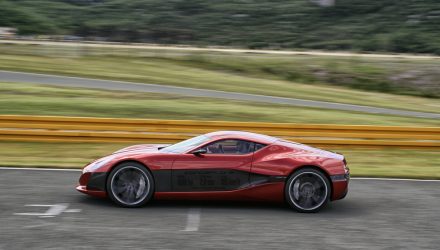It’s been a long time coming, but electric vehicles seem to finally be carving out market share at significant rates, with the number of EVs being registered in the first three months of 2022 growing an astonishing 60% despite the rest of the market being down, reported Car and Driver.
Electric vehicles have been available in U.S. markets for over 10 years, but their high price points and the lack of infrastructure in the form of available charging stations have meant that they have been extremely slow to gain public support. Those tides seem to be turning, though, with greater regulatory support for building out an electric grid that supports charging stations nationwide, constantly lower price options coming to market, and more robust options in the form of electric pick-up trucks.
The overall registration for new cars in the first quarter of 2022 dropped 18%, but EV registrations were up 60% at 3.4 million. In the U.S., the percentage of electric cars still remains a small piece of the market as a whole at just 4.6%, but it seems to have hit a significant stride of late and could rapidly gain market share.
The latest additions of highly anticipated EV offerings, such as the Ford F-150 Lightning, the Hyundai Ioniq 5, and the Kia EV6, seek to target a range of buyers, and with more EV model releases on the horizon, that appeal is only set to grow.
Investing in the EV Transition Globally With KARS
For investors looking to capture the potential growth of major EV producers globally, the KraneShares Electric Vehicles and Future Mobility ETF (NYSE: KARS) offers a good solution.
KARS invests in many familiar car companies such as Rivian, Tesla, Ford, Mercedes-Benz, GM, BMW, and major Chinese EV manufacturers such as Xpeng, Nio, and BYD, some of the biggest companies in the global electric vehicle industry.
KARS measures the performance of the Bloomberg Electric Vehicles Index, which tracks the industry holistically, including exposure to electric vehicle manufacturers, electric vehicle components, batteries, hydrogen fuel cells, and the raw materials utilized in the synthesis of producing parts for electric vehicles.
The index has strict qualification criteria. Companies must be part of the Bloomberg World Equity Aggregate Index, have a minimum free-float market cap of $500 million, and have a 90-day average daily traded value of $5 million.
The ETF has an expense ratio of 0.70%.
For more news, information, and strategy, visit the Climate Insights Channel.

